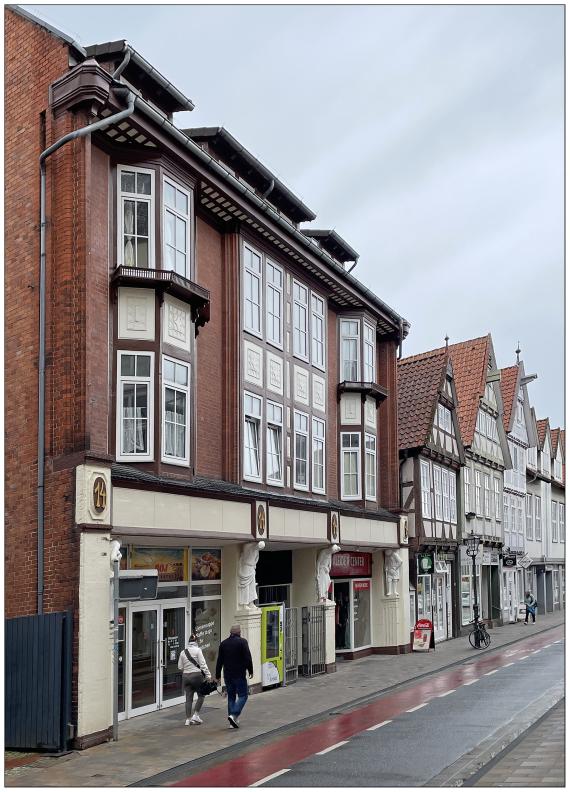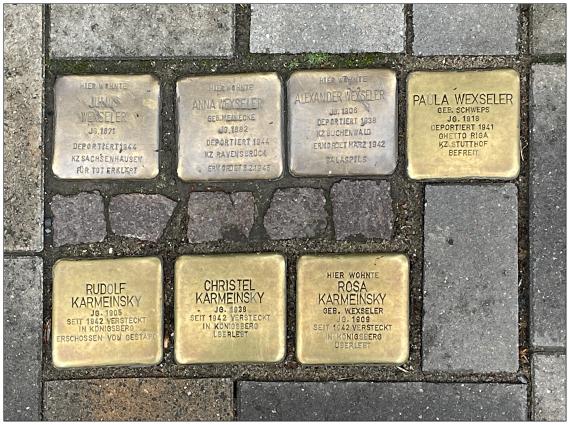Hehlentorstraße 14
Lower Saxony
29221 Celle
Germany
Julius Wexseler (born 1871 in Bersenbrück) came to Celle in 1899 after completing a commercial apprenticeship. Wexseler was Jewish, his wife Anna (born 1882 in Clenze), née Pevesdorf, belonged to the Lutheran Church, but converted before the wedding. They had two children, Alexander (born 1906) and Rosa (born 1909). In 1904, Wexseler set up his own business at Zöllnerstra<e 35 with a mail order business for textiles. His first store was opened at Rundenstra<e 14 in April 1905. In 1910, he rented the store in the modern building at Hehlentorstra<e 14. The business grew and Wexseler continued to operate in the itinerant trade and mail order business. In 1931, Wexseler became a member of the Neuehäuser Schützengesellschaft. After 1933, Wexseler was forced to give up the retail business and intensified his itinerant trade. As a result of the "Ordinance on the Elimination of Jews from German Economic Life" of 12 November 1938, he had to give up his business for good and his warehouse was "aryanized". Robbed of their livelihood, the Wexseler family had to move into a small apartment at Fuhrberger Landstraße 96 in the Wietzenbruch district. Julius Wexseler found a job as a worker in the Altona-Celle bed frame factory. On September 12, 1944, the Gestapo arrested the Wexseler couple. Julius was the last Jew living in Celle. He was taken to Sachsenhausen concentration camp and declared dead in 1945. Anna Wexseler was sent to the Ravensbrück women's concentration camp, where she died on February 6, 1945. Alexander Wexseler moved to Osnabrück in 1935 and was deported to the Buchenwald concentration camp on December 13, 1941 and from there to the Salaspils labor camp near Riga. He died there on March 15, 1942. His sister Rosa and her daughter Christel survived in hiding in East Prussia. Her husband, Rudolf Karmeinsky, was shot by the Gestapo shortly before the Red Army marched in. Rosa returned to Celle in 1945, but emigrated to the USA.


Add new comment